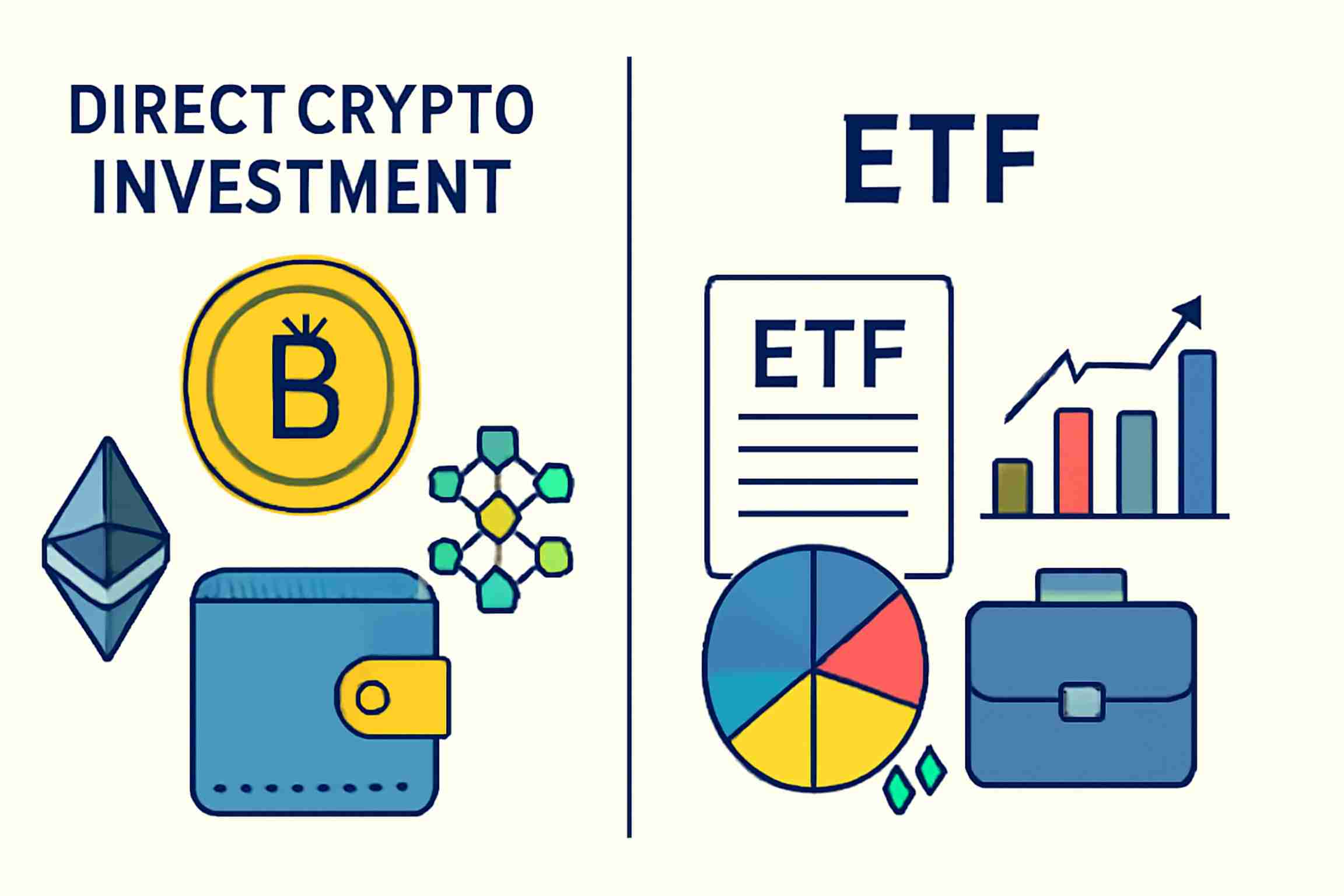Cryptocurrency investment has gained significant traction over the past decade, emerging as a prominent asset class within the financial landscape. At its core, cryptocurrency refers to digital or virtual currencies that use cryptography for security, making them immune to counterfeiting. Bitcoin, launched in 2009, was the first cryptocurrency and laid the groundwork for the diverse range of cryptocurrencies available today, including Ethereum, Litecoin, and countless altcoins. The appeal of cryptocurrencies lies in their potential for high returns, decentralized nature, and the underlying blockchain technology that ensures transparency and security in transactions.
The rise of cryptocurrencies is not just a passing trend; it reflects a broader shift in how people view money and investments. As more individuals recognize the limitations of traditional financial systems, many are turning to crypto as an alternative investment strategy. This pivot toward digital assets has prompted a growing interest among institutional and retail investors alike, leading to increased market capitalization and innovations within the cryptocurrency space. As a result, cryptocurrencies have become significant for those seeking to diversify their investment portfolios.
Moreover, the advent of cryptocurrency exchange-traded funds (ETFs) has introduced a new avenue for investing in this asset class. ETFs are investment funds that are traded on stock exchanges, much like stocks. They offer investors a way to gain exposure to cryptocurrencies without the need to directly buy and store the assets themselves. This option has garnered attention as it simplifies access to cryptocurrency investments, particularly for those who may be hesitant about navigating the complexities of direct cryptocurrency ownership. Thus, understanding the nuances between Crypto ETFs vs Direct Buying is essential for making informed and strategic investment decisions in today’s evolving financial landscape.
Understanding Direct Investment in Cryptocurrency

Direct investment in cryptocurrency refers to the process of purchasing digital assets directly from cryptocurrency exchanges or peer-to-peer platforms. Investors acquire cryptocurrencies such as Bitcoin, Ethereum, or other altcoins by creating an account on an exchange, depositing funds, and executing buy orders. This method offers individuals complete ownership and control over their investment, as they hold the private keys to their wallets, which is a crucial aspect of cryptocurrency management.
One of the primary advantages of direct investment is the potential for significant returns. Historically, certain cryptocurrencies have demonstrated dramatic price increases, providing early investors with substantial profits. Unlike traditional investment vehicles, cryptocurrency markets can experience rapid growth, and investors who buy at opportune moments may realize impressive gains.
Additionally, direct cryptocurrency purchases can involve lower operational fees than crypto ETFs, which typically charge management fees (e.g., 0.5–1% annually). However, direct investments may incur network transaction fees, such as Ethereum gas fees, which can vary significantly based on network congestion and may occasionally exceed ETF costs. Investors should compare exchange trading fees (e.g., 0.1–0.5% on platforms like Binance) with potential network costs to assess the true cost-effectiveness of direct ownership.
Furthermore, direct ownership allows investors to engage with the cryptocurrency ecosystem more deeply, including participating in governance processes, staking, or using their assets within decentralized finance (DeFi) platforms. This level of engagement can enhance the overall investment experience and lead to increased financial benefits.
However, investing directly in cryptocurrencies is not without its challenges. Market volatility is a significant risk, as prices can fluctuate dramatically within short timeframes. Additionally, proper security measures must be implemented to protect assets from hacking and theft, with the responsibility lying entirely with the investor. Storage options, such as hardware wallets or software wallets, should be carefully considered to ensure the safety of one’s investments. Nevertheless, understanding these complexities is essential for anyone considering direct investment in cryptocurrencies.
The Concept of Crypto ETFs
 Cryptocurrency Exchange-Traded Funds, commonly known as crypto ETFs, are investment vehicles that allow individuals to gain exposure to the cryptocurrency market without the need for direct ownership of these digital assets. By holding a basket of cryptocurrencies or related assets, crypto ETFs provide a unique opportunity for investors to participate in the growing cryptocurrency sector while mitigating the complexities associated with direct investment in cryptocurrencies.
Cryptocurrency Exchange-Traded Funds, commonly known as crypto ETFs, are investment vehicles that allow individuals to gain exposure to the cryptocurrency market without the need for direct ownership of these digital assets. By holding a basket of cryptocurrencies or related assets, crypto ETFs provide a unique opportunity for investors to participate in the growing cryptocurrency sector while mitigating the complexities associated with direct investment in cryptocurrencies.
Essentially, a crypto ETF operates similarly to traditional ETFs that track a particular index or asset class. Investors can buy and sell shares of the ETF on a stock exchange, much like any stock. This ease of trading makes crypto ETFs an attractive option for those who may be hesitant to engage with the more volatile and less regulated cryptocurrency markets directly. The structure of a crypto ETF typically includes the management of the underlying assets, allowing for professional oversight and potentially leading to more informed investment decisions.
Moreover, there are various types of crypto ETFs available in the market. Some are designed to track the performance of a specific cryptocurrency, like Bitcoin or Ethereum, while others may track a diversified portfolio of cryptocurrencies. There are also futures-based ETFs that invest in cryptocurrency futures contracts, offering investors the chance to benefit from price movements in the underlying assets without owning the cryptocurrencies themselves. This diversity allows investors to tailor their investments according to their risk appetite and market outlook.
The key benefits of investing in crypto ETFs include ease of trading and portfolio diversification. Investors can buy and sell their ETF shares at any time during market hours, providing liquidity and flexibility. Additionally, since crypto ETFs often encompass a variety of cryptocurrencies, they inherently reduce the risks associated with individual asset volatility, thereby enhancing the potential for stable long-term returns.
Pros of Direct Cryptocurrency Investment
Direct investment in cryptocurrencies offers several advantages that can appeal to various types of investors. One of the primary benefits is the potential for higher returns. Unlike traditional assets where gains may be moderate and closely tied to the performance of broader markets, cryptocurrencies can experience dramatic price fluctuations. Investors have the opportunity to capitalize on these swings, which can lead to substantial profits if timed appropriately. This volatility, while risky, also provides avenues for savvy investors to apply strategic approaches such as day trading or swing trading to maximize their gains.
Additionally, directly purchasing cryptocurrencies allows investors to have complete control over their assets. Investors can choose how much to invest, when to buy or sell, and which currencies to focus on. This level of autonomy can be particularly appealing, as it differs from traditional funds where decisions are made by portfolio managers. Moreover, the decentralized nature of cryptocurrencies means that investors are not reliant on financial intermediaries, thereby reducing transaction costs and exposure to counterparty risks.
Another advantage of direct cryptocurrency investment is the ability to participate in governance, particularly in protocols like Tezos or Ethereum. For instance, Tezos allows token holders to vote on protocol upgrades, such as the 2023 Granada upgrade, which reduced gas fees by up to 70%. This hands-on role fosters a sense of community and empowers investors to shape the network’s future, aligning their interests with the cryptocurrency’s long-term development.
In summary, direct investment in cryptocurrencies provides opportunities for higher returns, greater control over assets, and the chance to participate in governance. For individuals who are willing to accept the associated risks, this approach can serve as a rewarding avenue for investment.
Pros of Investing in Crypto ETFs
Investing in cryptocurrency has gained considerable traction in recent years, leading to various methods of engagement. One increasingly popular option is investing through cryptocurrency exchange-traded funds (ETFs). There are several pros for investors considering this path, especially for those new to the digital asset arena.
Firstly, one of the most appealing aspects of crypto ETFs is the lower barriers to entry they present. Traditional cryptocurrency investments often require investors to navigate complex wallets, exchanges, and security protocols. In contrast, crypto ETFs are available on conventional stock exchanges, enabling investors to purchase shares through their existing brokerage accounts easily. This accessibility invites a broader audience, including those who may be hesitant to dive directly into the crypto market.
Secondly, the simplicity of trading ETFs is a significant advantage. Investors familiar with stock trading can appreciate quick buy and sell options that ETFs provide. This straightforward trading mechanism mitigates some of the complexities associated with direct cryptocurrency investment, making it more accessible for casual or inexperienced investors, thus stimulating greater participation in the cryptocurrency space.
Furthermore, professional management is another attractive feature of crypto ETFs. Many funds are managed by experts who actively monitor cryptocurrency markets, assess market trends, and adjust holdings accordingly. This level of professional oversight not only enhances the potential for robust returns but also alleviates the need for individual investors to conduct extensive market research or make split-second investment decisions.
Finally, diversification is a crucial aspect of investing through crypto ETFs. Unlike buying a single cryptocurrency, ETFs typically hold a variety of assets, which can help spread risk. With a more diversified portfolio, investors can better manage volatility and reduce the potential impact of any one asset’s performance on their overall investment returns. This risk mitigation is particularly important in the often unpredictable world of cryptocurrency.
Read : Top 5 Crypto ETF
Risk Factors in Direct Cryptocurrency Investment
Direct investment in cryptocurrency presents a range of risk factors that investors must carefully consider before entering the market. One of the primary concerns is the inherent volatility associated with cryptocurrencies. Unlike traditional investments such as stocks or bonds, the pricing of cryptocurrencies can fluctuate dramatically within short time frames. This can lead to significant gains; however, it can just as easily result in substantial losses. Investors need to be prepared for the potential of large drawdowns in their portfolios as they navigate the crypto landscape.
Additionally, security concerns pose a serious risk for individuals who engage in direct cryptocurrency investment. The decentralized nature of cryptocurrencies presents unique challenges, particularly regarding the safeguarding of digital assets. Investors face the threat of hacking, phishing, and other cyber threats that could result in the loss of their investments. It is essential for investors to adopt stringent security measures, including the use of hardware wallets and two-factor authentication, to mitigate these risks effectively.
Regulatory challenges further complicate the investment landscape for cryptocurrencies. As governments around the world continue to define their stances on cryptocurrency, changes in regulations can have a profound effect on market stability and investor confidence. Uncertainty surrounding compliance, taxation, and legal status can create an unpredictable investment environment. Therefore, investors must stay informed about regulatory developments that may impact their crypto investments and be ready to adapt their strategies accordingly.
In summary, while direct cryptocurrency investment can offer significant potential rewards, it is essential to recognize and manage the accompanying risks. By understanding the volatility, security issues, and regulatory challenges inherent in the market, investors can better position themselves to make informed decisions and protect their portfolios effectively.
Risk Factors in Investing Through Crypto ETFs
Investing in cryptocurrency can be facilitated through exchange-traded funds (ETFs), which offer a unique approach to gaining exposure to this volatile market. However, it’s essential for potential investors to understand the inherent risks associated with this investment vehicle.
One concern with some crypto ETFs is the potential lack of transparency in their underlying assets, particularly with futures-based ETFs like the ProShares Bitcoin Strategy ETF. These funds invest in futures contracts, which may not directly reflect spot market holdings, creating uncertainty about exact exposure. In contrast, spot ETFs, such as BlackRock’s iShares Bitcoin Trust, typically disclose their cryptocurrency holdings clearly, offering greater transparency but still requiring investors to review fund prospectuses carefully.
Additionally, management fees associated with crypto ETFs may diminish overall returns. These fees, which are deducted from the fund’s assets, vary among different ETFs and can impact the net performance of the investment over time. Investors should carefully consider and compare these fee structures before committing capital. Furthermore, tracking error presents another risk factor. This occurs when the ETF’s performance does not accurately replicate the performance of the underlying cryptocurrency index it aims to track. Various factors—such as market factors, fund expenses, and timing—can contribute to this discrepancy, leading to potential frustrations for investors seeking direct market exposure.
Market risks are also prevalent in the realm of crypto ETFs. The cryptocurrency market is known for its volatility, and this can be magnified in ETFs due to their structure. For instance, sudden market fluctuations can lead to sharp declines in the ETF’s value, which can be both alarming and detrimental for investors. While ETFs may mitigate some risks associated with direct ownership of cryptocurrencies, such as concerns over security and custody, the unique challenges presented by ETF management warrant careful consideration. Understanding these specific risks is crucial for anyone contemplating an investment in crypto ETFs.
Real-World Use Cases and Success Stories

The landscape of cryptocurrency investment has evolved dramatically over the past decade, with numerous investors exploring both direct investments in digital currencies and the more structured approach of investing through crypto ETFs. These two strategies have yielded varying degrees of success, which can be illustrated through notable real-world cases.
A notable example of direct cryptocurrency investment is MicroStrategy, a business intelligence firm that began investing in Bitcoin in August 2020. Under CEO Michael Saylor, the company allocated $425 million to Bitcoin at an average price of approximately $11,000 per coin. By November 2021, when Bitcoin peaked at $69,000, their holdings were valued at over $2 billion, yielding substantial returns. This case underscores the potential for high rewards in direct investment, though it also highlights the risks of market volatility, as MicroStrategy faced significant unrealized losses during the 2022 bear market.
Conversely, an institutional investor, such as the Ontario Teachers’ Pension Plan, has embraced crypto ETFs to gain exposure to digital assets. In 2024, the fund invested in BlackRock’s iShares Bitcoin Trust (IBIT), a spot ETF tracking Bitcoin’s price. This approach allowed the fund to benefit from Bitcoin’s 2024 rally (reaching $80,000 by mid-2025, per CoinMarketCap) while leveraging the ETF’s regulatory compliance and ease of trading on traditional exchanges. By diversifying through a professionally managed fund, the investor mitigated some risks associated with direct ownership, such as custody challenges, demonstrating a balanced strategy for conservative institutions.
These anecdotes underline the diverse paths available to investors in the cryptocurrency space. While some may thrive through direct investments, others may find that crypto ETFs offer a balanced approach to navigating market dynamics. Personal risk tolerance, market knowledge, and investment goals play significant roles in determining which strategy may be right for each individual or institution.
Read : Nifty 50 vs Bitcoin : Who won from 2015-2025
Making the Right Investment Choice between Crypto ETFs vs Direct Buying

As the cryptocurrency market continues to evolve, the decision between direct investment in cryptocurrencies and investing through crypto exchange-traded funds remains a critical consideration for investors. Each approach offers unique benefits and potential drawbacks, which must be carefully evaluated in light of one’s overall investment strategy.
For those inclined towards hands-on control, direct investment in cryptocurrencies allows for personal engagement with the asset classes. This option can lead to higher risk due to volatility but also may yield significant rewards, especially for informed investors who actively manage their crypto portfolios. Conversely, investing in crypto ETFs presents a more diversified and regulated avenue, appealing to those who prefer a less labor-intensive approach. ETFs typically offer exposure to a basket of cryptocurrencies, reducing the risks associated with holding a single asset and mitigating the impact of market fluctuations.
When making the right investment choice, it is paramount to align one’s risk tolerance and financial goals with the selected strategy. Investors with a higher risk appetite may find direct cryptocurrency purchases more suitable for potentially quicker returns, whereas those prioritizing stability may gravitate towards crypto ETFs as a safer investment vehicle. Individual circumstances, such as knowledge of the cryptocurrency market, investment horizon, and liquidity needs, should also factor into the decision-making process.
Ultimately, the choice between direct investment in cryptocurrency and crypto ETFs will depend on personal preferences, understanding of market dynamics, and financial aspirations. By thoroughly analyzing these elements, investors can make informed decisions that align with their overall investment journeys, helping them achieve their financial goals in the rapidly changing landscape of digital assets.
Disclaimer: The information in this article is for educational purposes only and should not be considered financial or investment advice. Cryptocurrency and related investments are volatile and carry risks. Always conduct your own research or consult a qualified financial advisor before making investment decisions.



